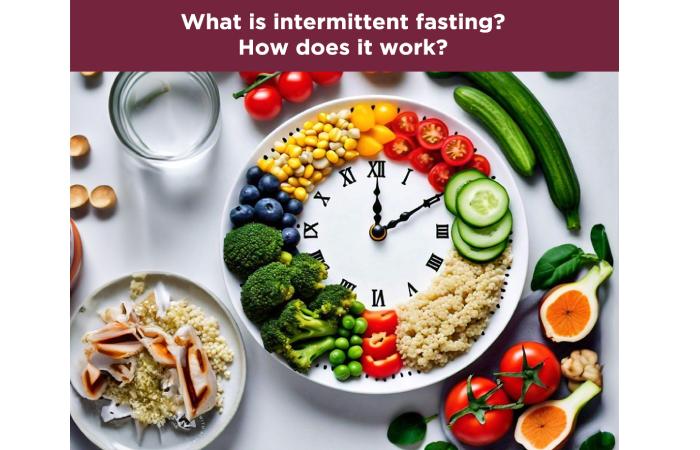Intermittent-fasting -is when you separate between ages of eating and dieting. This type of eating is generally defined as cycles, patterns, or fasting plans.
Intermittent fasting is not about starving yourself; it’s about cutting back on calories for shortages. You can drink water and drinks like black coffee and tea during fasting. The confidence is that your body becomes satisfied with lower portions while reducing hunger for unhealthy snack foods. That is, as long as you keep a healthy diet while trying it. There are some practical approaches, but it all comes down to particular preferences. Be ready to figure out what works best for you If you want to try . Some people find it easy to fast for 16 hours and restrain meals to just eight hours of the day, similar to 9 am to 5 pm, while others have a hard time and need to dock their fasting window.
Table of Contents
How Does Intermittent Fasting Work?

Your body’s primary energy source is a form of sugar called glucose, which circulates in the blood. When you eat a typical diet, your body has a steady force of sugar, primarily from carbohydrates. But after hours without eating, you burn up your stored sugar. When that happens, your body burns stored fat as energy, which is called metabolic switching. That is why intermittent fasting can help you lose weight and body fat.
Intermittent Fasting Benefits
Studies have shown in humans, intermittent fasting appears to have some essential health benefits, including:
- Weight loss
- Less insulin resistance, a condition that causes and worsens type 2 diabetes
- Reduced levels of unhealthy blood fats, such as cholesterol and triglycerides, which increase the risk for cardiovascular disease
- Lower blood pressure
- Better control of inflammation is linked to many diseases, from Alzheimer’s to asthma.
You may also find that intermittent fasting has some additional upsides, including:
Simplicity: Doesn’t require you to count calories or carbs. You don’t eat (or eat very little) during certain hours or days.
Adaptability: With intermittent fasting, you decide what to eat. However, selecting healthy foods for your non-fasting periods is preferable, as you may undermine the diet’s benefits if you choose highly processed foods. You can make work with food restrictions, such as if you’re vegetarian or fruitarian. And you can eat the diet you like, whether high- or low-carb, or low in fat.
Savings: You’re reducing the food you eat each week, so your grocery costs should go down.
Risk of Intermittent Fasting
Intermittent fasting is not safe for some people, including
- People who are pregnant or nursing.
- People who are glutted.
- People with low blood sugar.
- People with certain habitual conditions.
- Children.
People who menstruate, similar to pre-menopausal ladies, should be conservative as fasting can impact your hormones. still, you should not essay any fasting diet without medical supervision,” advises Zumpano,” If you have a history of an eating complaint or are presently being treated for one.” Intermittent fasting has also been known to increase the liability of binge eating or orthorexia in some people because of the limit.”
Conclusion
Restricting your eating window and occasionally fasting can have positive health effects if you consume only nutritious foods. It’s a simple yet highly effective way to enhance metabolic health and reduce body fat. However, taking the right advice from an expert nutritionist can better guide your intermittent fasting journey.

